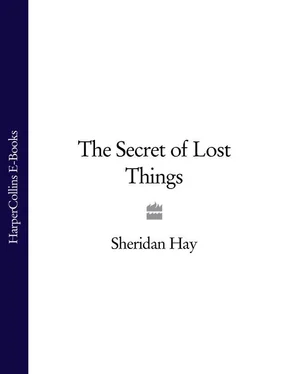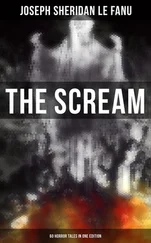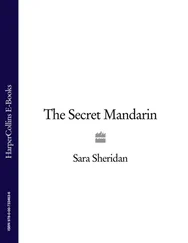I’d find her dozing on her stool behind the high serving counter in the afternoon. She said she could only rest in daylight, that she was most comfortable in the opened store, and that nights were spent endlessly waiting for day. When I finally discovered how deeply in debt we were, Mother’s insomnia was all at once explained.
Late morning one April day, a few months after I’d finished school, I came down the back stairs which joined our small flat to the shop, and found Mother collapsed behind the counter. Her breath was halted, her face the livid color of a bruise, as if she’d been beaten.
Mother died a day later, in the same free hospital where she’d given birth to me. By grotesque coincidence then, it appeared that the town, the state, and the whole of Australia commemorated my private loss publicly, the day I turned eighteen. Anzac Day. I didn’t consider the rosemary pinned to lapels an admonition to remember.
I would never forget.
Mother’s funeral was a short, unsentimental proceeding the following week. I stood in disbelief at the copper door of the mock tomb, a deco affair, that housed the crematorium, set on the highest hill above town. Five old regulars were good enough to come. Both men respectfully held hats to their chests, while the women thoughtfully appeared in Remarkable chapeaus. I thanked them along with Chaps, now my unofficial guardian.
The service was impoverished. Mother and I possessed no religion, save the worship of imagination, of living a kind of fiction, which death, in all its realness, had made a mockery of.
Afterward, we gathered awkwardly in the parking lot outside the tomb until the regulars departed solemnly in their cars, single file, down the steep road. I watched them grow smaller as they separated at the crossroads, the town below just a handful of scattered red tiles, haphazardly thrown across low green hills, without order or pattern, carelessly. It was a narrow, ugly spot on an island of tremendous beauty. The village had never seemed smaller or more unremarkable.
“She’s gone, Chaps,” was all I could manage, feeling short of breath.
The funeral director approached after a while, handing me Mother’s ashes sealed inside a wooden box.
“You said you wanted the simplest one, Miss Rosemary. And this here is the simplest. It’s a native timber, Huon pine. Tasmanian heartwood. Very strong and durable.”
He rapped the box with his knuckles. I winced. Chaps knew him, and, helpfully, the one funeral director in town who wasn’t too unctuous was also the least expensive. But he was nervous for his line of work, and oddly unpracticed in handling grief. He chatted away, not oblivious to my distress but perhaps made so anxious by it that he sought to fend it off with information.
“My supplier told me once that Huon pines can live a thousand years. Practically forever. Isn’t that something?” He went on: “The wood has a very distinctive perfume, too—strong.” He sniffed. “It’s usually found on the west coast of the island—”
“Yes. Thank you,” Chaps said, cutting him off. She took me by the elbow and tried to lead me toward her car. I appeared fixed to the spot.
I held the box of Huon pine with both hands spread beneath, unable to move. The box was warm and smelled faintly corrupt. My eyes began to tear, the water on my face as startling to me as to the nervous director.
Chaps finally pushed me to her car and drove me to her little house. I couldn’t get out, or really move at all, so we set off again, driving in silence down long Tasmanian roads all the way to the coast.
“The ocean,” Chaps said by way of explanation when, eventually, the paved road ended in sand and the sea stretched away, white-capped and vast, before us.
Chaps rolled down the windows so I could smell the salt and feel the pure, fresh Roaring Forties blow their way west to the bottom of the world, to the end of the great globe itself. My throat choked in the cleanest air that exists and I tried to catch my breath. Staring at the ocean, I felt at once surrounded and alone. Between me, there on the Tasmanian island, and ice-covered Antarctica lay nothing but empty, open sea, unpeopled and unknowing. I bent over the Huon box, but couldn’t utter a word until night came in, cold and complete, carried across the Great Southern Ocean by those same prevailing winds.
“What will I do?” I finally breathed aloud.
Chaps, who always had an aphorism to hand, was silent.
For nearly every year of my early life I went with Mother to Sydney, on the mainland, to buy hats and the materials milliners use to dress hats. We made sure to spend my birthday in the city; it was, of course, a public holiday. At first, we stayed in a boardinghouse in Surrey Hills, on Sophia Street. Mother had known the landlady, Merle, before she’d moved to Tasmania, when she lived a life I know nothing about. Her own life before mine.
Merle was a fat, angry woman with small eyes and dyed hair. She resembled a magpie, all black and white and on the lookout for morsels. Her rooming house was cheap, smelled of boiled vegetables; and until I was five and old enough to go with Mother to suppliers, I was left there with Merle for several hours.
Those early hours away from Mother are circumscribed in my memory by a shortage of breath. I can’t have actually held my breath, but the sensation of breathlessness is attached to Mother’s absence like a keepsake. Afraid to upset an invented balance that would result in Mother’s continued nonappearance, I stayed as quiet as possible in the stale-smelling sitting room. Her return was marked with great intakes of breath and tremendous exhales: life restored to the small cadaver I’d become.
“That’s the quietest child I’ve ever seen, Mrs. Savage,” Merle would say, tutting, and shaking her big, smooth head.
“It’s not natural to be so good. I’m happy to watch her, she’s no trouble, but it’s like she only exists for you.”
“I’m all she’s got,” Mother said, often.
“ Next year, Rosemary love, you can come with me and do the rounds,” Mother promised. “I don’t want to leave you any more than you want me to.”
So began annual encounters with haberdashery and notions, with felt workrooms full of rabbit pelts and beaver furs, with polished wooden heads and metal blocks (screws protruding from their necks), devices that formed crowns and shaped hats. The storefront shops were bright and cool, but the workrooms behind them were vaporous and warm, the air thick with condensation from steam used to mold and clean hats.
Every supplier indulged me. I was distracted, entertained with bright buttons and lengths of silk ribbon while Mother placed her orders and reviewed new styles. Like a bower bird, everything that sparkled caught my eye. I was served triangular sandwiches, and drank milk from a frosted glass with a striped paper straw. I was a small sultana, my treasure counted in the currency of trifles.
Foy’s supplied all the biggest department stores with accessories. The notion display room was lined with a wall of slim wooden drawers, built half a century before, that opened to reveal a collection of bric-a-brac: zippers, buttons, samples of fur and skins, silk flowers, sequins translucent as fish scales, glass beads, dye samples, feathers from unimaginable birds, sweets and fruit made from wax. The wall of drawers held hundreds of brilliantly colored trinkets designed to trim hats, to dress lapels or shoes or belts. Ornaments came from all over the world: marcasite stones from Czechoslovakia, brilliant as metallic diamonds, and rhinestone pins, direct from France, were stored in deep lower drawers, pirate’s chests unearthed.
I used to imagine that the endlessly varied objects contained in the drawers appeared only moments before the knob was pulled and the drawer opened, as if conjured by my wish to see them. The wall of drawers appeared to my small self to hold everything; and “things,” of course, were the sum of the world.
Читать дальше












